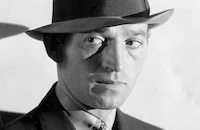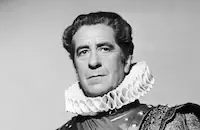The Woman from Monte Carlo

Brief Synopsis
Cast & Crew
Michael Curtiz
Lil Dagover
Walter Huston
Warren William
John Wray
George E. Stone
Film Details
Technical Specs

Synopsis
Deanna Corlaix, from Vienna, was once a playgirl but is now happily married to Commander Corlaix, an older man who married her to make her a lady, but then fell in love with her. Corlaix, commander of the La Fayette , the pride of the French Navy, is bound by his duty, and Deanna is left alone during his months at sea. One day, on the eve of World War I, Lieutenant George D'Ortelles, a former lover, brings her a note from her husband asking her to meet him aboard ship for a dance. While Deanna waits for her husband to join her, his executive officer, Brambourg, who knew her in Monte Carlo, makes advances toward her, but she laughs at him. During the dance, Corlaix receives word that war has been declared and all guests must go ashore. Angry that she must leave so soon and tipsy from champagne, Deanna complains to D'Ortelles, who has been ordered to accompany her off the ship. Instead, he hides her in his stateroom and swears his love, insisting that she could not love Corlaix. Believing his wife is already ashore, Corlaix confides in D'Ortelles that he does not believe Deanna loves him. She overhears her husband's remark and is determined to get to shore and forget D'Ortelles. The anchor, however, has already been pulled and she cannot escape. Brambourg suspects that D'Ortelles has a woman hidden and deliberately remains in the room, preventing Deanna from leaving. A ship is sighted, which flashes the code of an ally, and Corlaix allows it to get too close. The La Fayette is torpedoed and over three hundred lives are lost. D'Ortelles' orderly gets Deanna safely ashore, but Corlaix is blamed for the sinking of the La Fayette and is court-martialed. At the trial, Brambourg is the only survivor who can prove the destroyer flashed the friendly code, but he refuses to clear Corlaix because he wants to succeed him. Deanna also saw the signal but says nothing in order to conceal her presence on the ship. Finally D'Ortelles recovers from his delirium in the hospital and arrives at the trial to save Corlaix, but is declared an incompetent witness. Deanna is forced to corroborate D'Ortelles' statement, exonerating her husband at the expense of her honor. Although Deanna and D'Ortelles are innocent of adultery, Brambourg incriminates them, after which D'Ortelles shoots Brambourg and is taken away. Corlaix leaves the courtroom with his reputation restored and abandons Deanna, who returns to Vienna to resume her life as a fallen woman.

Director

Michael Curtiz
Cast

Lil Dagover

Walter Huston

Warren William

John Wray

George E. Stone

Robert Warwick
Matt Mchugh
Frederick Burton
Frank Leigh
Terrance Ray
Francis Mcdonald
Warner Richmond
Reginald Barlow

Clarence Muse
Oscar Apfel
Ben Hendricks Jr.

Maude Eburne
John Rutherford
Robert Rose
Elinor Weiselhoeft
Jack Kennedy
Jack Curtis
Dewey Robinson
Paul Porcasi
Crew
Charles Althouse
Joe Barry
E. R. De Bourgneuf
Perry Finnerman
Leo F. Forbstein
Ellsworth Fredericks
Anton Grot
Ernest Haller
Fred Jackman
Earl Luick
Harold Mclernon
Charles Pollock
William Schurr
Harvey Thew

Film Details
Technical Specs

Quotes
Trivia
Notes
The film's pre-release titles were The Captain's Wife and The Marked Woman. According to Variety this was Lil Dagover's first American film. Reviews call Dagover's character "Lottie," although she is referred to as "Deanna" in the film. Michael Morton's adaptation of Claude Farrère's and Lucien Népoty's play, entitled In the Night Watch, opened in London on December 21, 1918; its New York premiere was on January 29, 1921. This became the basis of the 1928 First National film The Night Watch, which was directed by Alexander Korda and starred Paul Lukas and Billie Dove (see AFI Catalog of Feature Films, 1921-30; F2.3843). Farrère's and Népoty's play was also the basis for a British/French co-production in 1925 and a French film in 1935, both entitled Veilles d'Armes.












